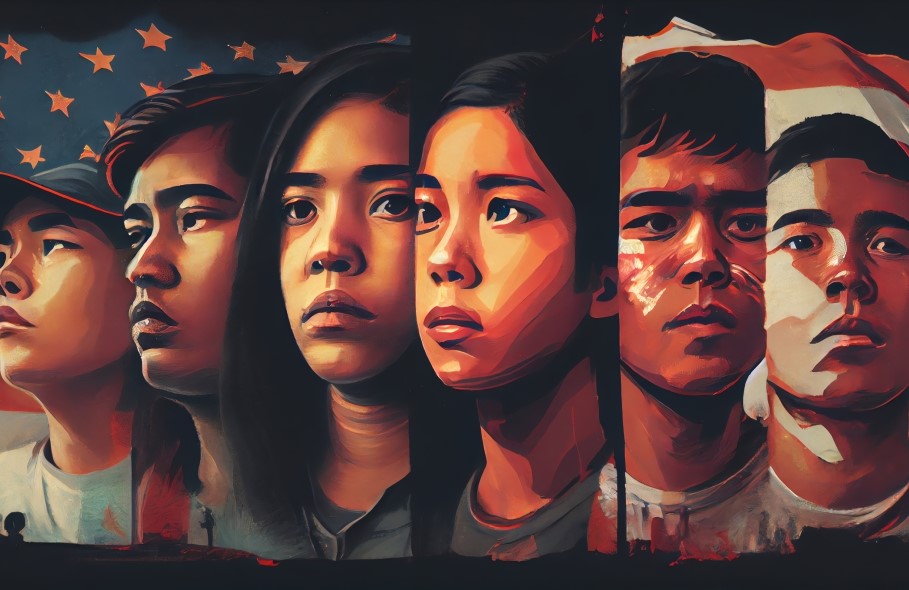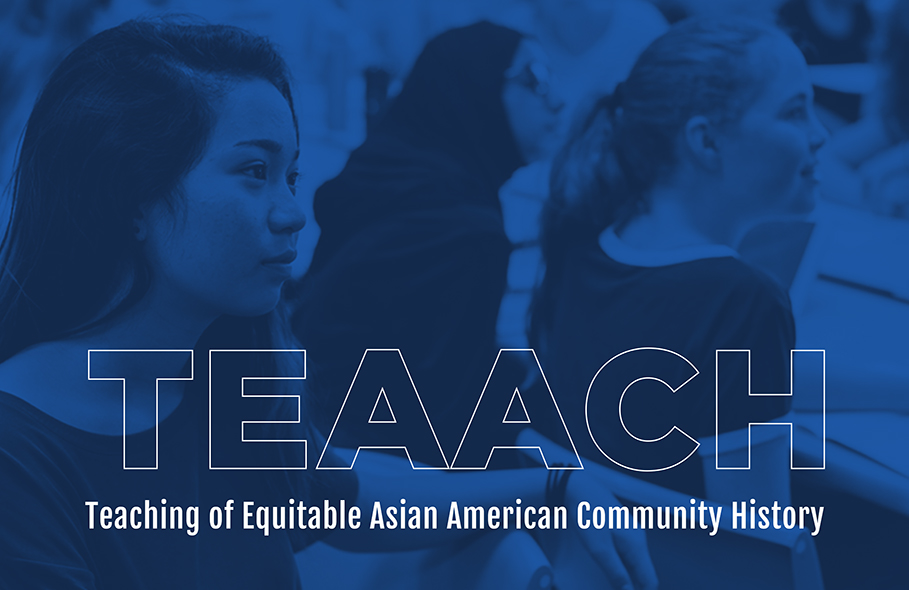Not Just Oppression: Lessons from one state on how schools can get Asian American history right
by Kalyn Belsha, Chalkbeat / May 9, 2024

This story was originally published by Chalkbeat. Sign up for their newsletters at ckbe.at/newsletters.
A former California park ranger traced his fingers over the Chinese characters carved onto a wall. It was as if ghosts were there, sharing their stories, he said.
The ranger was standing in the immigration station on Angel Island, the lesser-known West Coast counterpart to Ellis Island. Tens of thousands of immigrants, mostly from China and Japan, were detained there in the early 1900s. Many left behind poems or messages.
Dozens of Illinois teachers watched the ranger in a recorded video. They had gathered over Zoom to learn about how they could incorporate Angel Island and other key elements of Asian American history into their lessons. It was part of a university-led training meant to help Illinois teachers comply with a three-year-old, first-in-the-nation law that requires schools statewide to teach at least one unit of Asian American history.
Laura Ouk, one of the trainers that April evening, pulled up two poems from Angel Island and asked the teachers to read them aloud. Then she offered some sample questions the teachers could use with their students to examine tone and themes, as well as how they might connect the poetry to the works of poets like Langston Hughes and Joy Harjo.
“They really appreciate being able to see it in action,” Ouk said, “rather than just being like: ‘Here’s a resource, now good luck!’”
Across the country, advocates are pushing for American history to include more perspectives and stories. Eleven states now require public schools to teach Asian American history in some capacity, and several others are considering similar proposals. But as states and school districts adopt new curriculum requirements, educators can struggle with their own lack of knowledge, where to find quality resources — and how to fit it all into an already crowded syllabus.
The work happening in Illinois offers insight into what can help. It’s common for teachers to feel overwhelmed and think: “I need to teach this, I don’t even fully know this yet,” said Ouk, the visiting inclusive education director at the University of Illinois Urbana-Champaign’s College of Education and Illinois State Board of Education.
Read the full story from Chalkbeat, a nonprofit news organization covering public education...

